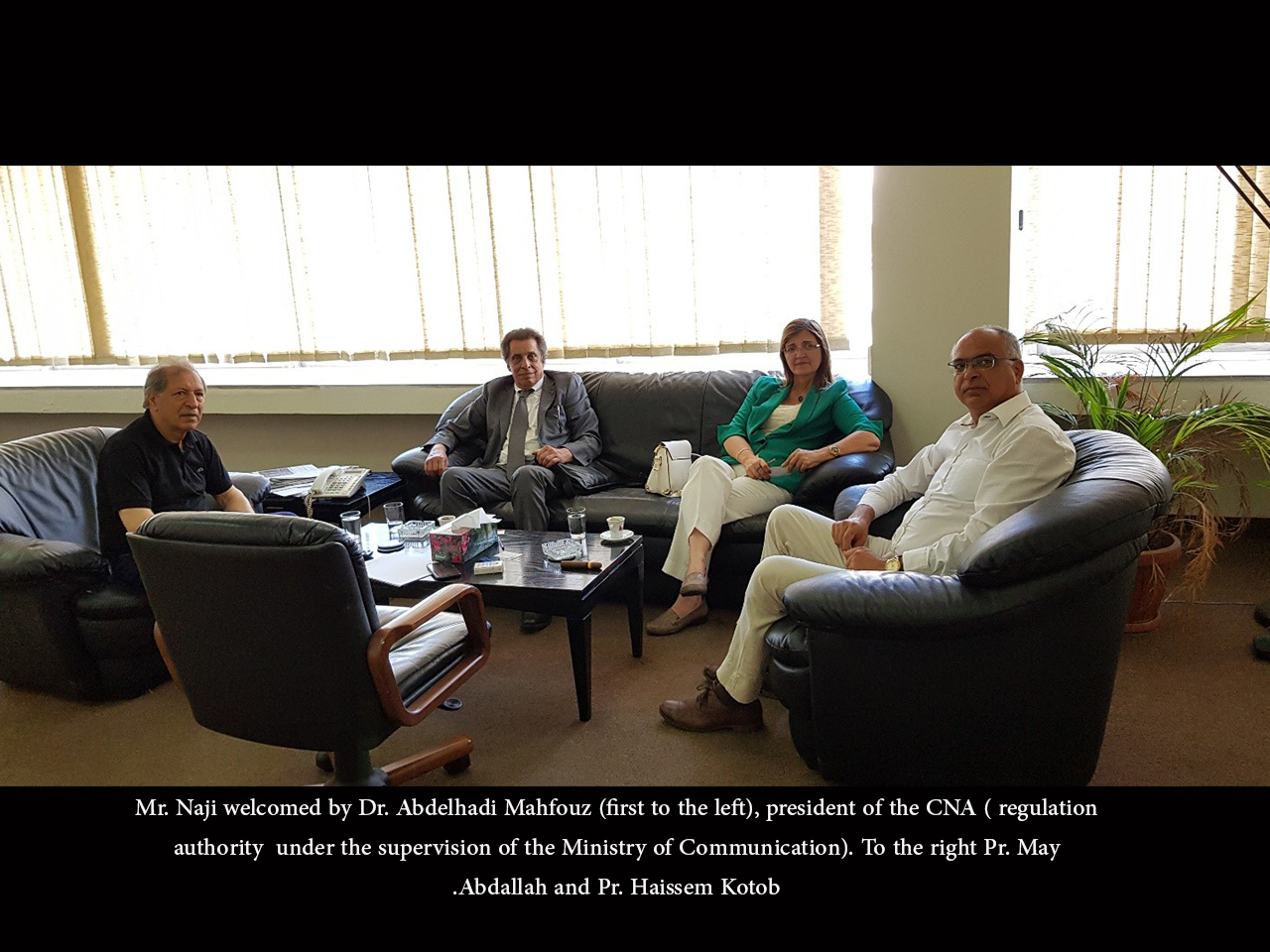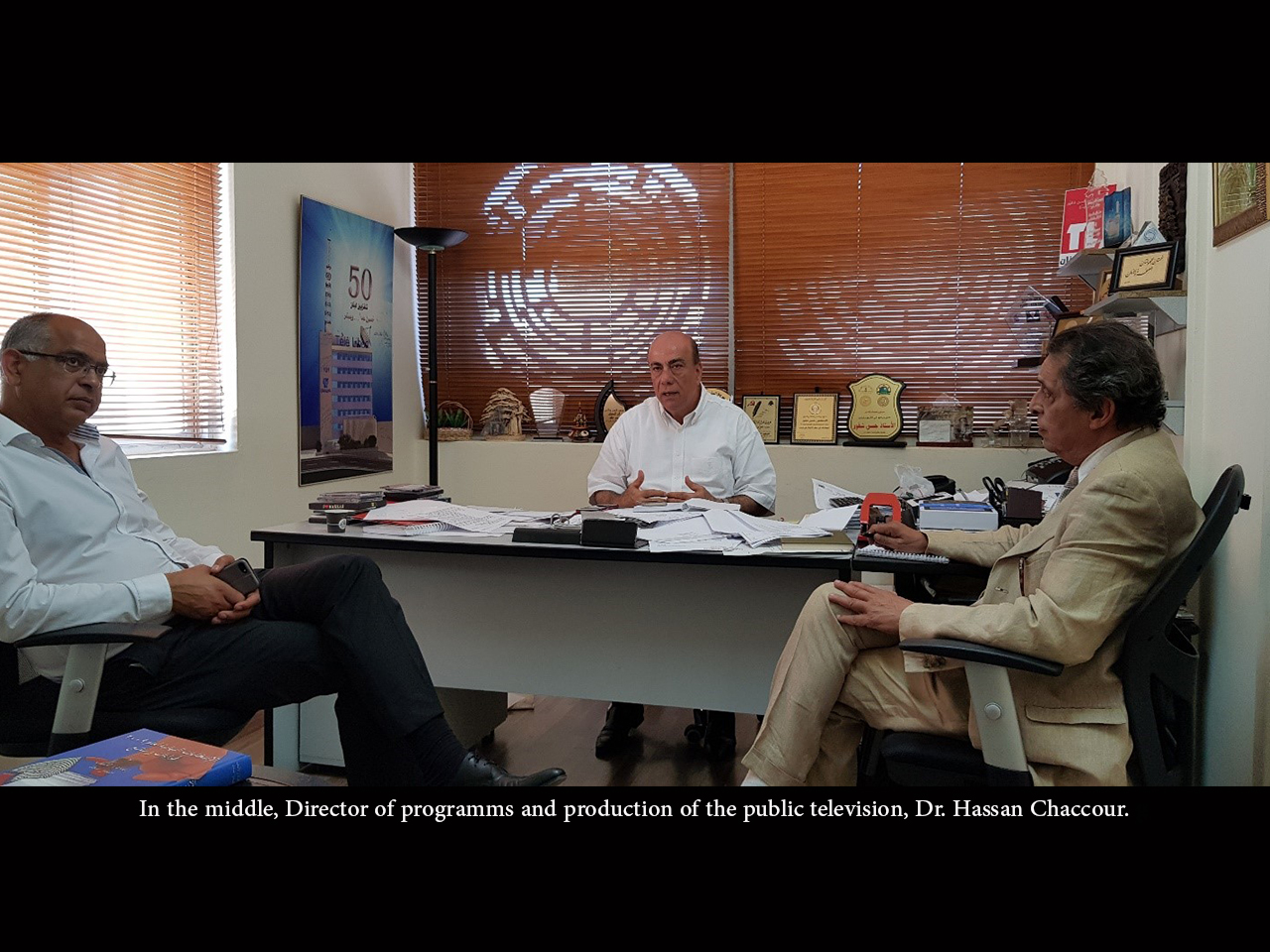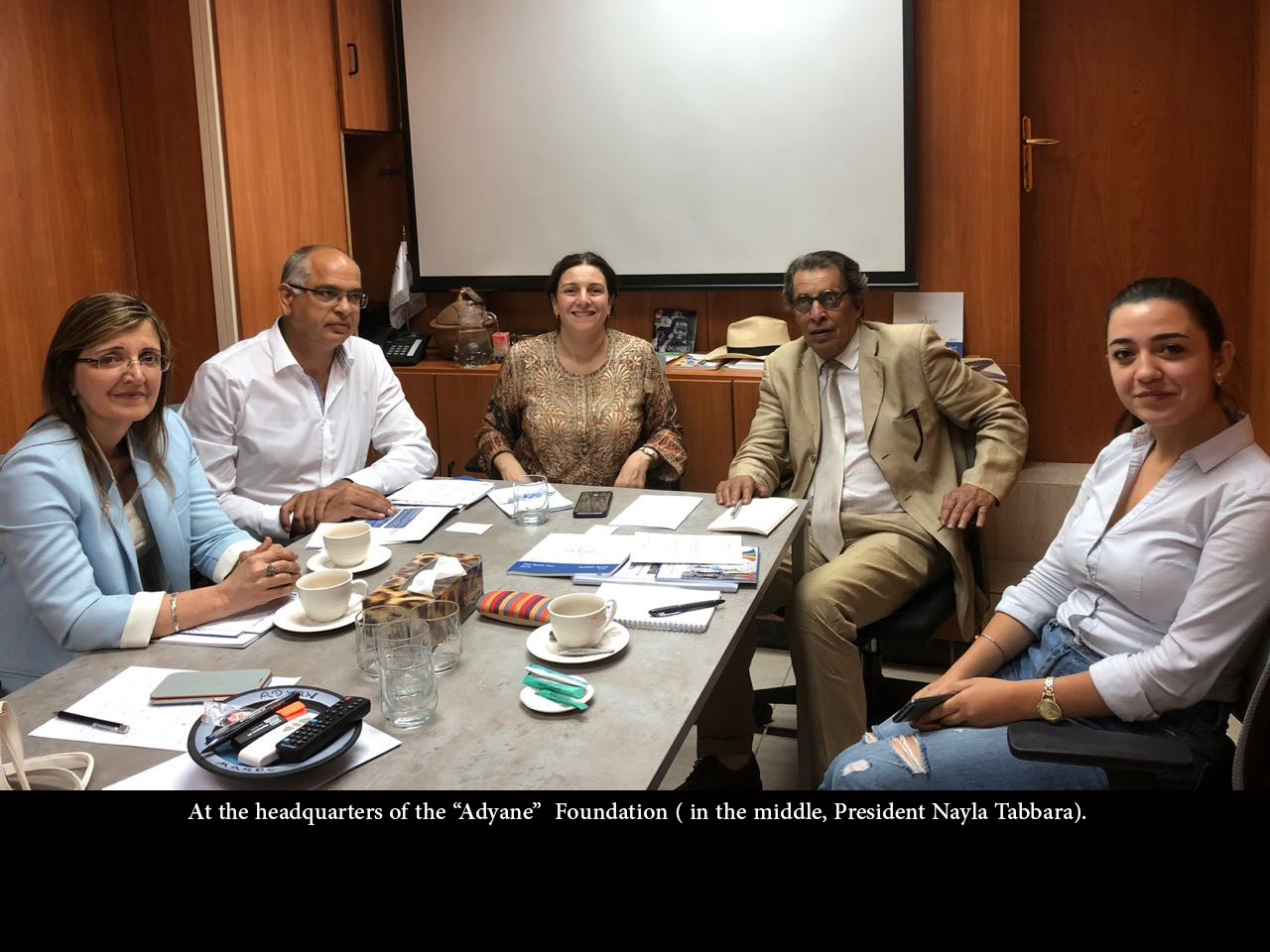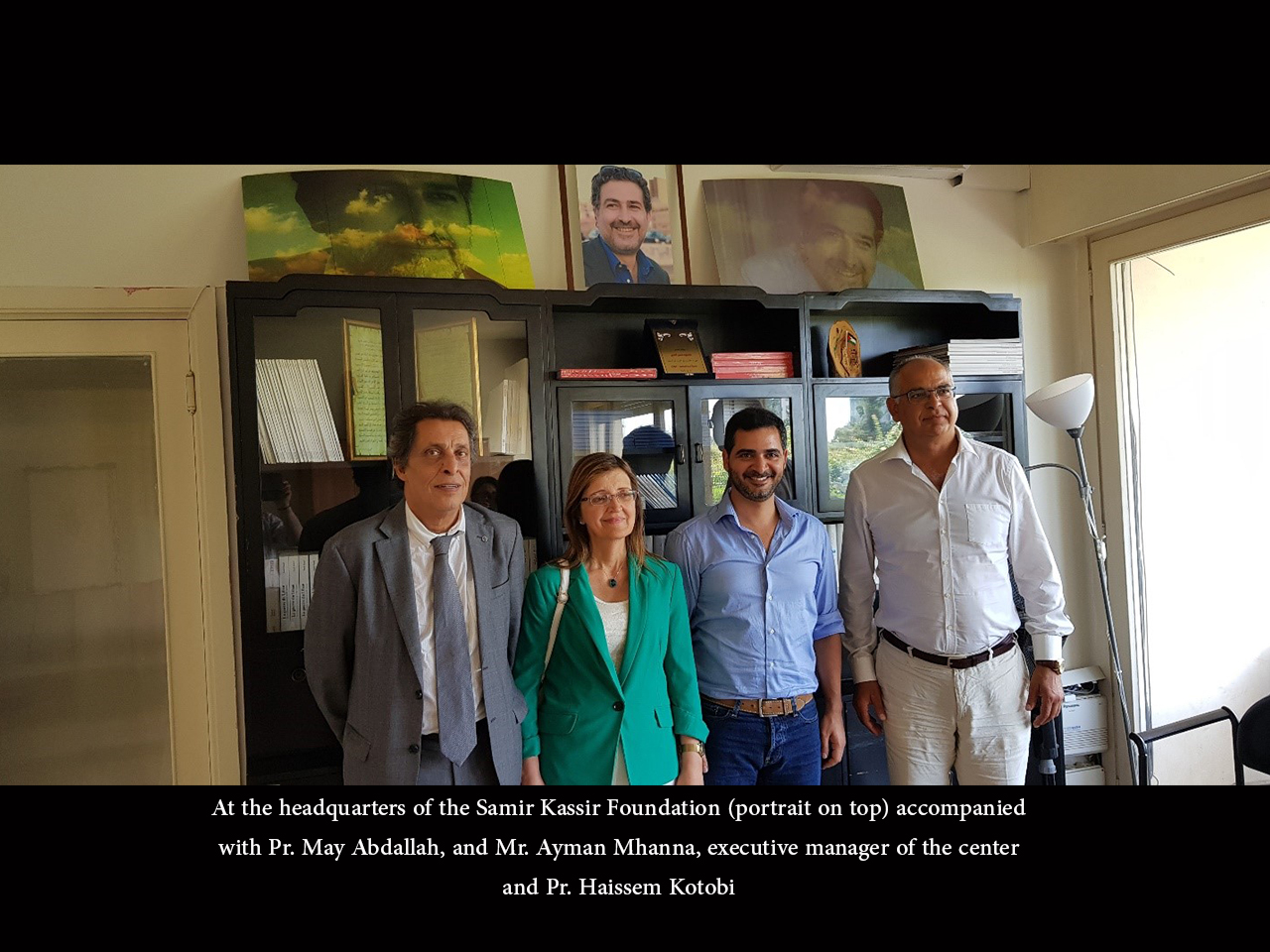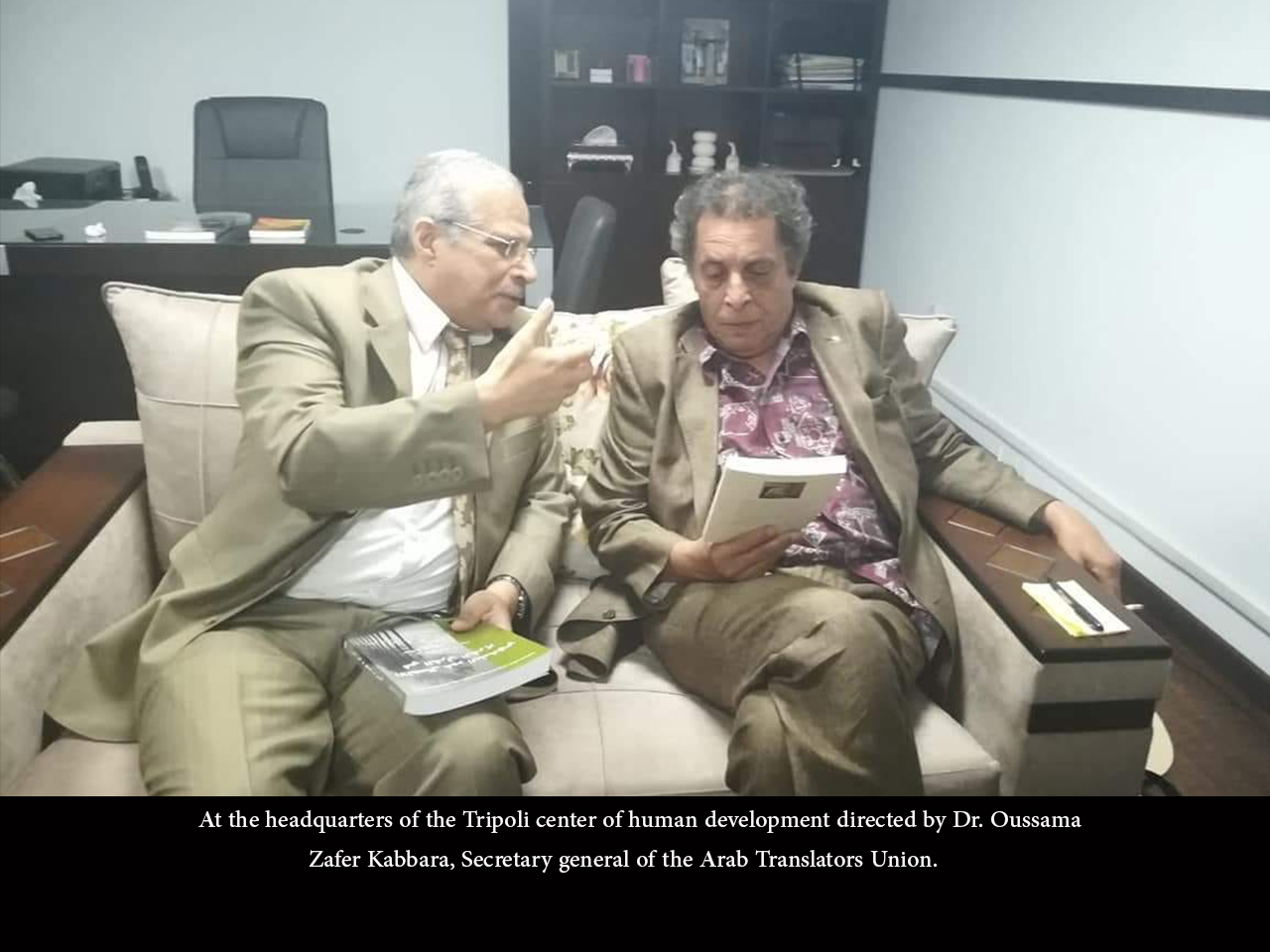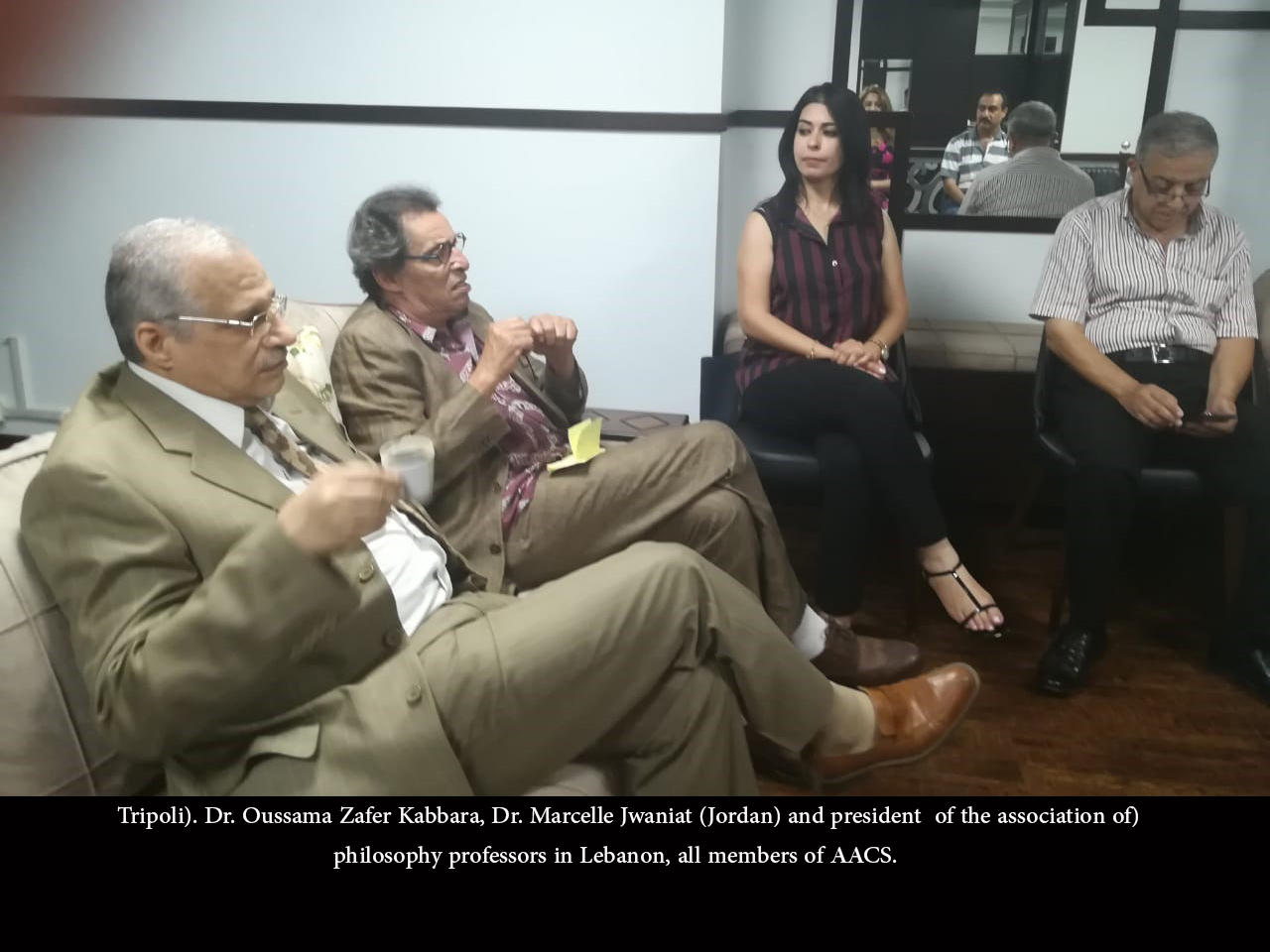Mr. Naji Pays a Visit of Information and Exchange to The Lebanese Regulator, Media, Universities and Independent Research Centers
Mr. Jamal Eddine Naji, Director-General of the High Authority for Audiovisual Communication (HACA) and President of the International Network of UNESCO Chairs in Communication (ORBICOM), carried out visits of information and exchange in Beirut and Tripoli, to different representatives of the Lebanese media landscape, Dr. Abdel Hadi Mahfouz, President of the National Audiovisual Council (CNA, a regulation authority), in its headquarters at the Ministry of Information, and Dr. Hassan Chaccour, director of programs and production in the Lebanese public TV (“TL”, founded in 1957). These two meetings focused on the institutional, legal, economic and regulatory aspects related to the Lebanese broadcasting field, which is dominated by private media. The debates also shed light on the future of the public service that encounters numerous challenges, similar to those facing the Moroccan public sector. “Our TV, which was closed in 2001 for financial and security reasons, spends nowadays one million dollars per month”, said Mr. Chaccour.
Mr. Naji also conducted long meetings and debates in four independent research centers, holding the status of NGOs and working in the field of communication sciences and research, on some targeted topics relating to media content or human sciences generally. The DG of the HACA encountered the teams of two centres, internationally renowned to media professionals and decision makers, working on good practices in line with the following universal values and recommendations : diversity, gender equity, media literacy, democratic citizenship, tolerance and hate speech based on religious practices, beliefs and sectarian stances, particularly in case of war or conflict… Mr. Naji also debated with founders and members of the “Adyan Foundtion for diversity, solidarity and human dignity”, that celebrates today its twelve years anniversary under the direction of Dr. Nayla Tabbara who leads the research institute specialized in “ Citizenship and diversity management” (www.adyanefoundation.org ; www.taadudiya.com ). It is to be noted that among the recent publications of the organization, there is a “Précis de conduite journalistique en matière de couverture des questions religieuses et particulièrement la liberté de culte” and “ La légitimité nationale pour le vivre ensemble au Liban à l’aune de la citoyenneté protectrice de la diversité religieuse”.
The “Samir Kassir Foundation” was the second research foundation that Mr. Naji visited, as it is internationally reputed for its studies, researches and organization of events focused on democratic values, Human Rights, journalists protection, the promotion of freedom of expression versus electronic and alternative media… This Foundation was created in Beirut, on February 2006, eight months after the bomb vehicle assassination of the journalist and writer Samir Kassir, on June 2nd 2005 in Beirut. Thus, the companions of the deceased, his wife on top, created this organization in order to honor his memory and continue his tragic fight for the dissemination of the culture of democracy in Lebanon and the Arab world, and encourage the new free press talents, and start a movement in favor of the Arab democratic and cultural resurgence. The mission of the Samir Kassir foundation, that is headed by Gisele Al Khoury the widow of the martyr, revolves around three complementary approaches: the preservation of the literary, academic and journalistic heritage of Samir Kassir, together with its translations and publications; the fight for cultural freedom, while supporting the freedom of thoughts through organizing conferences, specialized seminars, and art festivals that are open to international cultures and all social categories; defending press freedom via establishing a monitoring system to detect all the violations committed against journalists and media professionals, in addition to bringing legal support to the persecuted journalists and reinforcing media professionals competences. This approach also includes the creation of the Samir Kassir special Reward for young journalists.
The interview that Mr. Naji had with the team of the foundation, particularly its executive manager Mr. Ayman Mhanna, was mainly focused on the three recent regional studies that were published by the foundation i.e. “the watchful eye of Samir Kassir on Media” (www.skeyesmedia.org) : “ Nasseej, Médias et diversité au Proche-Orient » (2017), « Reception and perception of radical messages » (2016); and « Digital Rights, Online Media and Electoral Campaigns » (this latter falls within a specific program of media literacy that was launched by the foundation for the digital generation : “D’JIL”.
In addition, as President of Orbicom, Pr. Naji had several exchanges with a number of professors and officials from the University of Beirut, and the Al Jinan University in Tripoli. These meetings were organized by Pr. May Abdallah, member of the board of executives in Orbicom, ex-director of the Journalism Department, ex-director of the Communication and Information Sciences Department, founding member of the Scientific Council of the Laboratory of Information and Communication Sciences in the Arab Association for Research and Communication Sciences (AACS), that publishes quarterly a magazine intitled “Communication & Development” in three languages (Arabic, French, English) whose editor in chief is also Pr. May Abdallah.
Also present in these three days meetings was the historian and linguist Pr. Hayssam Kotob, Vice-President of the AACS.
On the other hand, Orbicom President together with Pr. May Abdallah and her colleagues from both universities (Beirut and Tripoli, the second largest city in Lebanon) and the AACS, explored the possibility of creating a Unesco Chair of regional beam in the Middle East, which would fill in the gap of Chairs in the Arab region as is target also in Africa. This project already enjoys the support of numerous scholars from the two universities, ex-deans and head of departments, with the support of a cercal of scholars from Lebanon, Jordan, Iraq, UAE, and specialized NGOs like the “Information Center on Human Development and studies on the Middle East” in Tripoli that is directed by the secretary general of the Arab Translator’s Union Dr. Oussama Zafer Kabbara.

